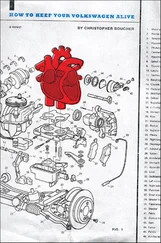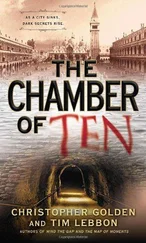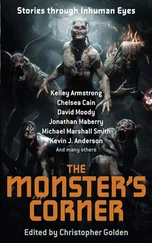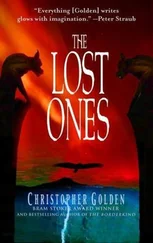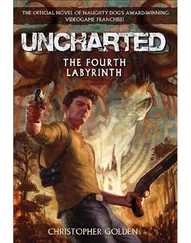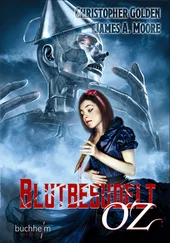“Yes,” said the pair of overalls.
“Where is it?”
“I don’t have it.”
“You have to pay your rent, Jaime,” my Dad said.
“Do I?” the overalls said.
Soon it wouldn’t matter — more than half of my Dad’s tenants stopped paying. Some left in the middle of the night; some stayed behind even when the heat skipped town and the water died in the pipes.
With so few tenants living in the building, my Dad lost faith and fell behind on upkeep. And now that I think about it? That was right around the same time that my thoughts started turning inward, digging into my brain. My Mom took me back to Doctor Coat to see if this might be related to the music pills, and the Coat opened up my head and looked around. When he peered inside, one of my thoughts gave him the finger.
“Hm,” the Coat said. “Where are your other thoughts?” he asked me, his voice echoing off the walls of my skull.
“Out,” I said.
“Out where?” said the Coat.
“ Out , OK?” I said.
“You see?” my Mom said. “He’s had that puss on his face for weeks now.”
“I have a headache, OK?” I said.
“It’s always something, isn’t it,  ?” she said.
?” she said.
At home, our phone rang and rang. We were assaulted with calls and prayers from bill collectors, banks, disgruntled tenants. Soon my Dad stopped praying altogether. One day Mrs. Parker, who always paid her rent, prayed to me about a leaking toilet. I went to ask my Dad about it and found him on the back patio, picking pieces from a half-rotten Kaddish fruit. I told him about the prayer for service. “Sounds like a serious situation,” I said. “Do you want to go over there?”
“I’m not going anywhere,” he said, looking out into the trees.
“Should I go over there?”
“Christ,” my Dad said. “Tell her I’ll get there when I can.”
“Today?”
“When I can ,” my Dad said.
So that’s what I prayed to her. Hours later, though, Mrs. Parker prayed to me again. “Help!” her prayer said. “The water is up to my knees!”
I didn’t pray back.
“Now it’s up to my waist!” she prayed.
If I was really a good person? I would have ridden out there on my Bicycle Built for Two just to see what I could do. But instead I sat down on the couch with a bag of chips and watched TV, just like the spoiled, selfish piece of shit my Mom said I was. I didn’t move for the rest of the afternoon — not even when Mrs. Parker prayed to me that the water was up to her chin. Not even when the prayers stopped altogether.
As I said, my sister Briana was a towntalent in the arts of ancient construction and antiquing. Before I was even allowed to go with them, she and my Dad would take off for the dump in his truck and return with an overwhelm of strange objects. Growing up with her, I didn’t really appreciate the kind of eye it took to spot meaning — I couldn’t tell the difference between a worba and a forba, between a norch and a nouch — but my sister could spot truth in objects that your standard vulture or scav would look right past: she’d see the old in the warboots, hear the subtle sounds in a dead viola, recognize an entropy as a shrine from a goneby religion. When Bri was twelve, my Dad built a shed in the backyard where she could store her collectibles and tools. Once or a twice a summer he’d load up the truck with her fixed-ups and meaningfuls, drive her to the flea, and set up a table for her where she could sell. He’d subtract the meaning for the table and she’d get to keep the rest.
One day in the summer of her sixteenth year—1989, that would have been — my sister was cleaning out the shed, separating the meaningful from the seemingly-so. I was out in the yard that day, too, sanding window frames for my Dad. After working in the shed for a while, my sister took some of the less-meaningful objects — a nightstand, a sump pump, a faux-antique mailbox, and some other ifs and ands — out to the treebelt and left them by the road for the taking. Then she helped me with the windows; I taped and she painted. We had the tape deck blasting from the front steps. “Who is this?” I asked Briana at one point.
“UCs,” she said.
“Who?” I said.
We were midway through the stack of windows when a Pontiac pulled over in front of our house. A scarf stepped out of the car, walked over to the pile, and picked up the sump. He turned it over, held it up, and shouted out to us, “How much?”
My sister put her hands on her hips.
Before she could answer, a woman in an old, leaning veggiecar pulled up in front of the scarf’s Pontiac. The woman rolled down the window and said, “That sump pump for sale?”
My sister looked at me, and then back at the scarf and the woman.
“How much are you asking for it?” the woman said.
It felt to me like all of Appleseed stopped at that moment — even the clouds and the air and the prayers.
“How about,” Briana said, her voice pivoting, “two concepts?”
The woman got out of the car; she and the scarf looked at each other. Then the woman said, “Two, yes.”
“I’ll give you two and a quarter concepts,” said the scarf.
I saw a flash in Briana’s eye. “Do-I-hear—” she said, “—two-and-a- half ?”
“What?” said the scarf. “What is this, an—”
“Two and a half,” said the woman.
“Three,” said the scarf.
Just like that, the Auctioneer was born. “Four?” she said. “Do-I-hear-four?”
I remember the music in her words. That first call wasn’t perfect — her bidding responses were mumbled, hesitant — but I think all three of us heard the natural rhythmic tumble in her voice. It was as if she’d been waiting for this page all her life, and finally you turned to it.
“Four,” said the woman.
“Five,” said the scarf.
“Do-I-hear-six?” said Briana.
The scarf and woman looked at each other.
“Six? Going-once? Going-twice?”
“Six,” said the woman.
With every bid, it seemed, the Auctioneer found more of a foothold. “Six. Seven? Do-I-hear-seven? Going-once! Going-twice?”
The scarf shook its head.
“Sold-to-the-woman-with-the-angry-ears!” said the Auctioneer.
The woman frowned.
That was the beginning of a new chapter for my sister. When she told my Dad what had happened, he set up a piece of plywood on some sawhorses in the backyard and she rifled through the shed for more items to sell. The next day, people showed up in our driveway as if driven by some external force; they sat in the grass while my sister stood on a chair and called the auction. She held auctions the following day, too, and all day that Saturday. Soon, she was skipping school so she could focus on building an inventory for her backyard auctions. She replaced the plywood with folding tables and the chair with a beat-up lectern. Within a few weeks, everyone in Appleseed knew about my sister and her auctions — there were always ten or eleven cars camped out in front of 577, waiting for bidding to begin. Every afternoon of my fourteenth year I’d pedal home from school, sit on the roof with a bag of chips, and watch the bidders shouting and arguing.
“Don’t-tell-me-good-people-that-twenty-four-is-the-best-you-can- do !” my sister shouted, standing at a lectern. “I-thought-you-were-serious-and-meaningful!”
“Twenty-six!” someone hollered.
“Still-an-insulting-amount-of-meaning-for-this-particular-washboard,” my sister shouted. “It-is-an-ANTIQUE-after-all—”
“Thirty!”
Soon, people started telling stories about my sister’s gifts: her discerning eye, the cadence and precision of her voice, her ability to engage with a crowd and elicit meaning. One night that fall, my sister sat down at the kitchen table for dinner and said she had an announcement. “I-will-no-longer-respond-to-the-name-Briana,” she said.
Читать дальше
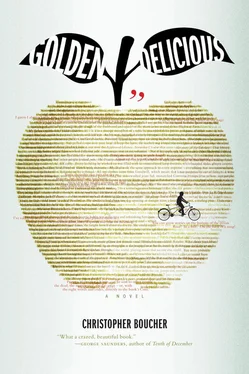
 ?” she said.
?” she said.
